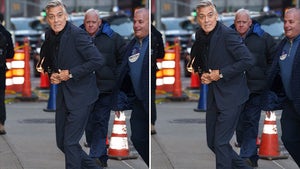Inquiry Into Princess Diana's Death 'More Complex'
LONDON -- An inquiry into the death of Princess Diana is "far more complex than any of us thought," the official leading the investigation said Friday without commenting on the conspiracy theories that persist nearly nine years after her death.
Lord Stevens, the former head of London's Metropolitan Police, acknowledged that some of the issues raised by Mohammed al Fayed -- whose son, Dodi, was killed in the 1997 car crash with Diana -- were "right to be raised." He did not elaborate.
Mohammed al Fayed, the owner of London's famous Harrods store, has claimed Diana and his son were killed by British intelligence officials and their deaths resulted from a plot instigated by Prince Philip, husband of Queen Elizabeth II and Diana's former father-in-law.
Stevens, speaking in a recorded interview to Britain's GMTV Sunday Program, did not reveal which of al Fayed's concerns he believed were correct.
"It is right to say that some of the issues that have been raised by Mr. Fayed have been right to be raised," he told the program, to be broadcast Sunday. "We are pursing those. It is a far more complex inquiry than any of us thought."
Asked why, Stevens said: "I think it is generally the case of these things, when you actually go into them and look into them in minute detail."
The officer said the inquiries had so far thrown up more questions "to be answered ... and that makes it a complex issue," he said.
Stevens also was asked whether the results of his inquiry would surprise the public.
"I have no idea at all, but one thing you can be sure of is that it is a detailed inquiry ... the conclusions that we come to and I come to will be based on the evidence," he said in a transcript released Friday.
Stevens said his team was examining the vehicle in which Dodi was traveling on Aug. 31, 1997, in Paris.
Diana, 36, her companion Dodi Fayed, 42, and their driver, Henri Paul, were killed when the car crashed into a pillar in an underpass. The only survivor, Diana's bodyguard, Trevor Rees-Jones, was badly hurt.
A French judge ruled in 1999 that the crash was an accident, and an investigation concluded that Paul had been drinking and was driving at high speed.
However, a British-led inquiry was ordered by the Royal Coroner, Michael Burgess, who raised concern about the number of conspiracy theories over the deaths.
"I think what people want is a thorough investigation going where the evidence takes us, and some of the answers to some of the questions that have been raised in national newspapers and in other parts of the world," said Stevens, who stepped down as London police chief in 2005.
"That is the job I have been asked to do and that is the job I'll do."
Stevens has spoken to Prince Charles about the death of his former wife as part of his inquiry.




